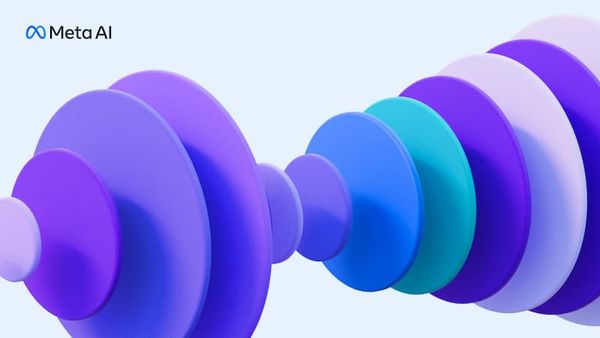Facebook, once known for its ambitious plan to create a virtual world called the "metaverse," has taken a new direction. Despite spending billions of dollars on the project, produced a cumulative loss of $26 billion. This, combined with the pressure from investors, led Facebook to kill the metaverse and pursue a new trend: AI.
Mark Zuckerberg, CEO of Meta Platforms, has decided to bury his ambitious project, the Metaverse, and redirect his attention towards Artificial Intelligence (AI). The Metaverse was supposed to be the next big thing for Zuckerberg, but it has now been quietly shelved indefinitely.
Hit by Reality (Labs)
Reality Labs, the division responsible for the Metaverse projects, recorded a cumulative loss of nearly $26 billion in 2021 and 2022, which has likely contributed to Zuckerberg's decision to shift the company's focus.
Meta's New Focus? AI...
In the short term, Meta will focus on building creative and expressive tools for AI. Over the long term, the company plans to develop AI personas that can help people in a "variety" of ways. Zuckerberg said in a recent post on Facebook, "We're creating a new top-level product group at Meta focused on generative AI to turbocharge our work in this area. We're starting by pulling together a lot of the teams working on generative AI across the company into one group focused on building delightful experiences around this technology."
AI's Potential
The shift to AI reflects the immense potential of the technology to revolutionize the way consumers and businesses operate. AI-powered chatbots can efficiently carry out repetitive tasks, and AI-powered search engines like ChatGPT can provide human-like responses to queries. The new focus on AI may help to ease the losses incurred by Reality Labs and provide new opportunities for the company.
More Open AI than OpenAI
On 24th February, Facebook "released" its latest language model, LLaMA, consisting of four foundation models ranging from 7B to 65B parameters. The models "outperform" GPT-3 175B on most benchmarks.

Facebook's move towards AI is not unique, as many companies are looking at the success of OpenAI's recent ChatGPT and are wanting a piece of the action. However, OpenAI's GPT-3, which has over 175 billion machine learning parameters, is not open-sourced and requires a lot of resources to run locally. Facebook, on the other hand, is developing smaller AI models that may not face the same criticism and could be run locally if the AI market continues to be popular.
OpenAI has received criticism in recent times for not making its popular GPT-3 models open source and not allowing users to run them locally. This has resulted in restrictions on what users can do with their API. However, Facebook is creating smaller AI models, which may result in less argument against allowing people to run them locally.
Meta, the Future of Self-Hosted AI?
The development of AI technology is impressive, but only if it is free and open source software(FOSS). FOSS AI allows users to self-host generative chat models that are fine-tuned to their preferences, trained on their work, or whatever they need them to do. This is the ultimate tool, but self-hosting is the only way to achieve this without giving corporations insight into personal data.
The AI market is growing rapidly, and it is pushing consumer good manufacturers to produce higher tier products that will allow end-users to run AI applications. Such as graphics card manufacturers that produce cards with more vRAM, making running larger models locally more of a possibility. Currently, AMD and Nvidia have cards with up to 24GB of vRAM, and Nvidia's Adam Lovelace supports up to 48GB of vRAM.
These devices will make it possible and easier for end-users to run AI software on their machines rather than paying for similar cloud solutions. We are seeing this with Stable Diffusion and the many free interfaces, such as (automatic1111 and InvokeAi) released, allowing users the freedom to create on their own machines with their own rules and privacy intact.
The idea of self-hosted AI, where a person could train a generative chat model on their own data and preferences, is an exciting concept. But not yet a widely fruitful prospect in today's reality. This would be the ultimate tool and the only way to achieve it is through self-hosting. However, self-hosting also raises concerns about corporations having insight into people's lives.
It will be interesting to see how Facebook competes with OpenAI and if it will be able to produce generative models that are more open and accessible to the end-users.
Meta has the Funding Advantage Over OpenAI
Training models based on GPT-3 is incredibly expensive, costing around $10 million, but Facebook is a much bigger company than OpenAI, so it has some advantages in terms of scale and infrastructure. Facebook could potentially develop a powerful AI for a much lower cost than OpenAI. Given it's recent "release" of lLaMA, it seems it's on the right trajectory but only time will tell if Meta/Facebook has the internal inertia to pull it off or go the way of the "Metaverse" and possibly hop on the next trend in two or three years' time.
Will Facebook Redeem Itself?
Facebook's first project, Facebook, was criticised for taking control away from end-users. The company has a chance to redeem itself by becoming an AI company that produces generative models that are freely available (and fit for production), but only time will tell if its models will be proprietary or open-sourced.
Takeaway
Mark Zuckerberg's decision to shift the focus of Meta Platforms from the Metaverse to AI reflects the immense potential of AI technology to revolutionize the way consumers and businesses operate. The new focus on AI may help to ease the losses, investors' minds, and bad publicity, incurred by Meta's Reality Labs and provide new opportunities for the company. Meta's competition with Open AI will be worth keeping an eye on, as the company plans to develop AI models that are more open and accessible to the end-users.








